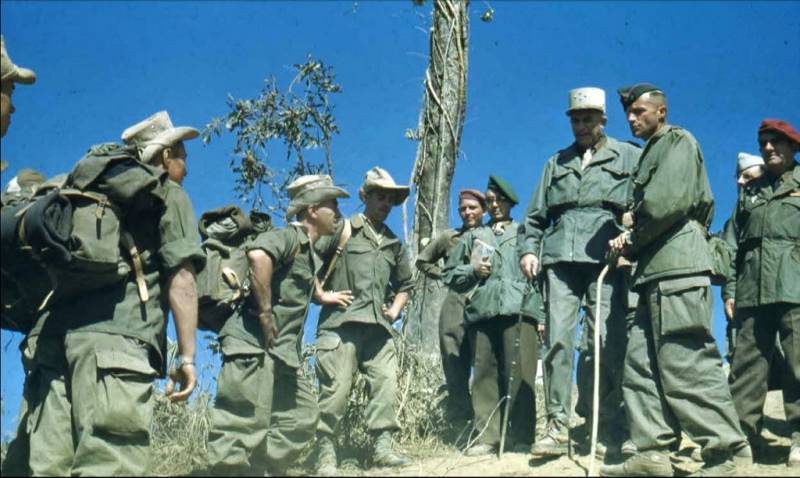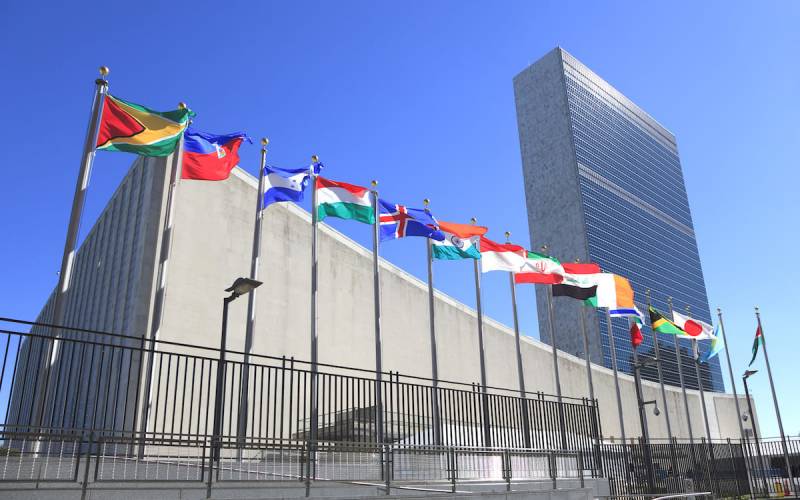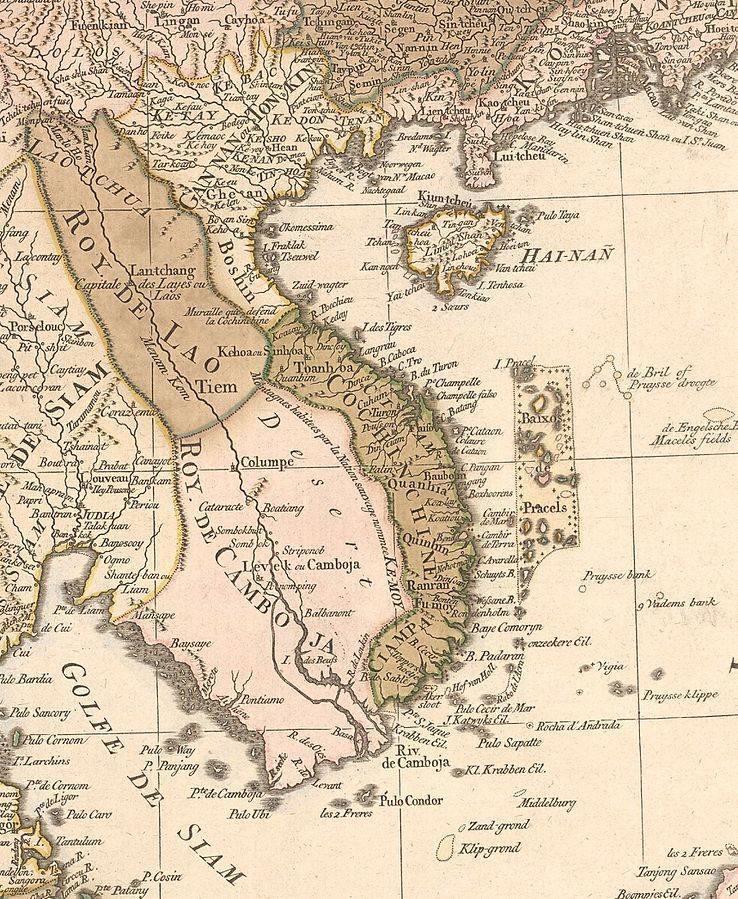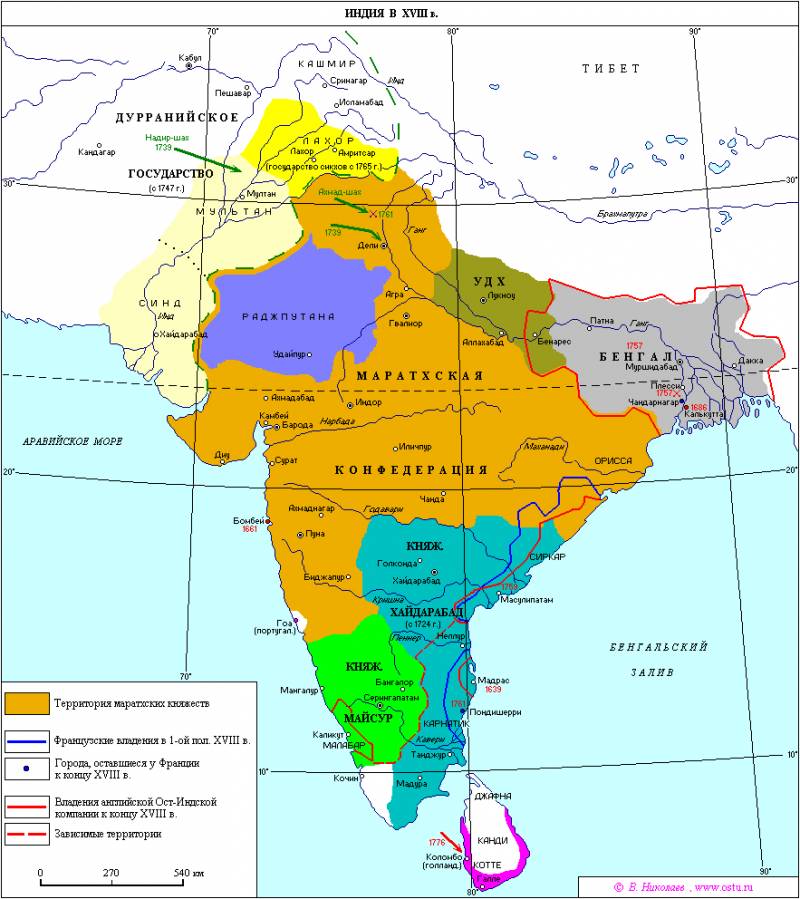The final chord of French Hindustan

To own is not yet to possess
Until 1947, India was “possessed” not only by Great Britain: from the 1961th–1954th centuries, five coastal regions in western India remained part of Portugal until XNUMX, and five more in the southwest and southeast of the huge country were part of France until XNUMX. It was then that another change happened there.
In the last week of August 1953, the Indian government issued an ultimatum to Paris: France must transfer the remaining four French territories to India no later than that year or the spring of 1954. Otherwise, military action to decolonize these areas could not be ruled out.
Official Paris, with its mass of problems in Africa and a number of other areas, was simply forced to agree to Indian demands.
Let us explain: the Indian side first - in 1947–1948. - insisted on the unconditional transfer of French, as well as Portuguese territories. But the West, of course, was not interested in the political strengthening of India, so Washington and London initially supported the policy of Paris and Lisbon to preserve these colonial fragments.
Under a special agreement in 1948, it was planned to hold a referendum on the status of French territories, which was never held. And in 1950, Paris nevertheless transferred the Chandernagore region in East Bengal to India, not far from Calcutta.
Paris delayed the transfer of the remaining French regions. Indian demands were supported, along with the USSR and China, by neighboring Indonesia, Nepal, Bhutan, Sikkim, and ex-British Ceylon and Burma, adjacent to India (these are Sri Lanka and Myanmar, respectively, since 1972 and 1989).
But the Pakistani authorities did not support Indian demands for the French and Portuguese regions, in view of the still persistent Pakistani-Indian confrontation. According to some sources, Islamabad even offered military cooperation with those metropolises to protect their areas in India, but Paris and Lisbon did not dare to create such an alliance.
But the mentioned factors allowed France, like Portugal, to delay, or even interrupt, negotiations with Delhi on the status of the same territories. Since 1950, the Government of India has demanded that the UN include disputed areas, including Portuguese ones, in the UN list of colonial territories.

But France, a member of the Security Council, opposed this demand. But the USSR could not support India at the UN at that time, since it boycotted it in 1950–1952. this structure due to the fact that China's place in the UN was retained by Kuomintang Taiwan. Let us recall in this regard that the PRC, at the insistence of the United States, was declared by the UN to be the aggressor in the Korean War of 1950–1953.
Economics dictated
There was also an economic background to French policy.
Those territories have long ensured the export to the metropolis, that is, to France and Portugal, of various raw materials from the adjacent regions of India. Plus, these colonial enclaves were important outposts of the military-political and economic presence of the metropolises in Asia and the Indian Ocean.
Yes, they had essentially a “symbolic” territory - the regions of France in India had no more than 550 square meters. km (Indian regions of Portugal - no more than 2,6 thousand sq. km). Yes, more than 70% of the population of the French and Portuguese regions in India were Indians... But the very fact of their presence was important.
The “delays” in the return of four French regions to India were also due to the fact that during that period - until the end of 1954 - France had been waging a colonial war in nearby Indochina since the second half of the 1940s. The goal was to ensure that Vietnam, Cambodia and Laos remained “French Indochina”.
The initial successes of the French troops allowed Paris not to stand on ceremony with Delhi's demands for French territories in India, and the Indian side not to risk sending troops into those areas. A characteristic touch: the pro-Nazi French regime of Vichy, we emphasize, in a matter of days in 1940, unconditionally transferred “French Indochina” to Japanese control.

But soon after the Second World War, France, for almost ten years, tried with fire and sword to restore its colonial regime there... But in vain: thanks to assistance to the anti-colonial movement in Indochina from the USSR and China, French troops soon suffered a crushing defeat in Vietnam, which led to their subsequent evacuation also from Laos and Cambodia (1954–1955).
France's position in India and in Asia in general has become like the notorious shagreen leather. General Andre Menard, one of the last governors (in 1950–1954) of “French India” noted that, “since France began to lose the war with Vietnam in 1953, this contributed to India’s ultimatum at the end of August 1953 regarding the transfer of the remaining French regions in Hindustan to it.”
“This demand was actively supported by the USSR and China, while Great Britain and the USA were pleased with our upcoming withdrawal from Indochina, hoping to “replace” Paris in this region.” Therefore, Washington and London “did not support France’s policy of preserving its territories in India.” According to A. Menard, the departure of Paris from these areas will soon force Lisbon to cede the Portuguese areas there to India.
Capitulations are different
This happened at the end of 1961, although Portugal offered military resistance to India. But decisive Soviet support for the liberation campaign of the Indian army led to the surrender of Portuguese troops there. The USSR was even ready to provide direct military assistance to India in this war, as stated by the head of the Presidium of the Supreme Soviet of the USSR L.I. Brezhnev during a visit to India in December 1961. Soon after this statement, Lisbon capitulated.
As for the French regions, from the end of August 1953 France began a phased withdrawal of its troops and police forces from there. The French administration of those areas asked the Indian side to extend the transfer of territories until the fall of 1954 and not to forcefully evict the French from there who did not leave for France.
Delhi agreed, proposing to conclude an agreement under which France would unconditionally recognize the Indian status of the transferred areas and would not challenge it. But Paris initially rejected this proposal: they say, what if it will be possible to return?..
Paris's agreement to transfer those areas was also influenced by the fact that in 1954 the anti-colonial war of the Algerians against France began, and French troops in Algeria were increasingly defeated. So for this reason, Paris was no longer interested in preserving colonial fragments in India.

As a result, by November 1, 1954, the French regions of Pondicherry, Karikkal, Mahe and Yanaon officially became Indian; Moreover, the main French region - Pondicherry - actually became Indian later - since 1956. The government of the USSR congratulated India on these events, welcoming its policy of eliminating pockets of colonialism in this country.
During J. Nehru's visit to the USSR in June 1955, the Soviet side assured that it would support the liquidation of the last French fragment (Pondicherry) and the Portuguese regions in India. The same was repeated during the visit of Khrushchev and Bulganin to India in November 1955.
So Moscow’s position contributed to the final abolition of the colonial regions of Paris in Hindustan. However, France only signed an agreement with India in August 1962, according to which it refused to challenge the Indian status of those areas.
The Indian authorities did not resort to the eviction of the French who voluntarily left for France or remained in the former French enclaves of India. To date, almost 100% of the population of these areas are Indians. At the same time, in the same areas, monuments from the French period are preserved, and at least a quarter of the population there are Catholics.
Thus, in 1953–1954. France lost all its colonies in India and in Asia in general. Moreover, Paris left Indochina and India at the same time.
Information